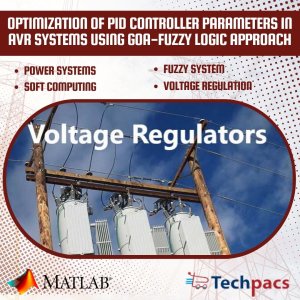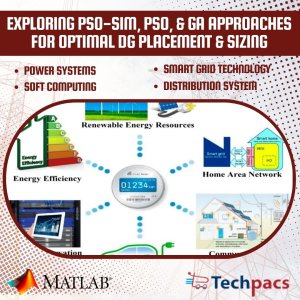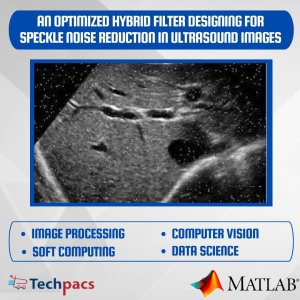Optimizing Photovoltaic Systems with FOPID Controller-based MPPT and Hybrid Optimization Algorithms
Problem Definition
In the field of renewable energy, the optimization of Maximum Power Point Tracking (MPPT) techniques for solar panels and wind turbines is crucial for maximizing energy output. Despite the development of various MPPT techniques, such systems are still faced with limitations, particularly in terms of large oscillations that decrease their overall efficiency. The utilization of Ant Colony Optimization (ACO) technique for MPPT, as proposed by researchers in [1], shows promise in efficiently monitoring the Maximum Power Point (MPP) in PV systems. However, the ACO technique has its drawbacks, such as a slow convergence rate and susceptibility to getting stuck in local minima. The dependence on specific constants, like the value of α, further limits the effectiveness of the ACO model, especially when facing scenarios with minimal sunlight or wind speed.
These challenges highlight the need for a new and improved MPPT strategy that can overcome these constraints and enhance energy harvesting capabilities in renewable energy systems.
Objective
The objective of this project is to develop a new Maximum Power Point Tracking (MPPT) strategy that overcomes the limitations of current techniques used in solar PV systems and wind turbines. By incorporating a Fractional Order Proportional-Integral-Derivative (FOPID) controller-based algorithm and utilizing a hybrid optimization technique with the Whale Optimization Algorithm (WOA) and Particle Swarm Optimization (PSO), the goal is to optimize the efficiency and reliability of power generation. Additionally, the inclusion of a fuel cell and battery storage system aims to ensure a continuous power supply even during low sunlight or wind speed conditions. The objective is to improve overall energy sources and power distribution to provide optimal power to loads, address the shortcomings of traditional MPPT techniques, and enhance power generation from renewable sources.
Proposed Work
This project aims to address the issues faced by current Maximum Power Point Tracking (MPPT) techniques used in solar PV systems and wind turbines. The existing methods, such as the Ant Colony Optimization (ACO) technique, have shown limitations in terms of convergence rate and effectiveness under certain conditions. To overcome these challenges, a new MPPT strategy is proposed that incorporates a Fractional Order Proportional-Integral-Derivative (FOPID) controller-based algorithm. This innovative approach involves the utilization of a hybrid optimization technique that combines the Whale Optimization Algorithm (WOA) and the Particle Swarm Optimization (PSO) algorithm. By integrating these two algorithms, the proposed model aims to optimize the gain values of the FOPID controller to enhance the efficiency and reliability of the power generation system.
Furthermore, the inclusion of a fuel cell and battery storage system ensures a continuous power supply even during periods of low sunlight or wind speed.
The proposed work not only focuses on improving the MPPT algorithm but also considers the overall energy sources and power distribution to provide optimal power to the loads. By incorporating hybrid optimization techniques, such as WOA and PSO, the model aims to overcome the limitations of individual algorithms and enhance the overall performance of the system. The utilization of the FOPID controller further enhances the dynamic response of the system, with the optimal gain values being determined by the hybrid WOA-PSO algorithm. This comprehensive approach addresses the shortcomings of traditional MPPT techniques and offers a promising solution for efficient power generation from renewable sources.
Application Area for Industry
This project can be utilized in various industrial sectors that rely on solar panels and wind turbines for power generation, such as renewable energy, telecommunications, agriculture, and remote monitoring systems. The proposed solutions address the challenges of large oscillations in MPPT techniques by incorporating hybrid optimization methods like WOA and PSO, along with a FOPID controller. By doing so, the system can efficiently track the MPP and provide a stable power supply to the connected loads, even in the absence of sunlight or wind speed. The benefits of implementing these solutions include improved efficiency, dynamic response, and overall performance of the power generation model, while avoiding issues like slow convergence rates and being stuck in local minima. This project aims to offer a fresh and potent MPPT strategy that can overcome the limitations of existing techniques, making it suitable for a wide range of industrial applications.
Application Area for Academics
The proposed project can greatly enrich academic research, education, and training in the field of renewable energy systems. By developing a new and efficient Maximum Power Point Tracking (MPPT) method using hybrid optimization techniques, researchers and students can explore innovative research methods and simulations for improving the performance of solar PV systems and wind turbines.
The relevance of this project lies in its potential applications in real-world scenarios where efficient energy generation is crucial. By addressing the limitations of existing MPPT techniques, the proposed work can pave the way for more reliable and effective power generation systems in educational settings and beyond.
Researchers, MTech students, and PhD scholars in the field of renewable energy systems can utilize the code and literature of this project to enhance their work.
By focusing on hybrid optimization methods such as Whale Optimization Algorithm (WOA) and Particle Swarm Optimization (PSO), along with a Fuzzy Proportional-Integral-Derivative (FOPID) controller, researchers can explore advanced techniques for improving the dynamic response and efficiency of renewable energy systems.
The project's future scope includes further optimization of the hybrid algorithm, testing it in different environmental conditions, and scaling it up for larger power generation systems. By incorporating cutting-edge technologies and research domains, this project can serve as a valuable resource for academic research and training in the field of renewable energy systems.
Algorithms Used
The proposed MPPT method in this project utilizes a combination of FOPID controller, Whale Optimization Algorithm (WOA), and Particle Swarm Optimization (PSO). The FOPID controller enhances the dynamic response of the system by optimizing gain values. By combining WOA and PSO, the algorithm overcomes shortcomings of individual optimization methods, leading to improved efficiency in power generation. The hybrid optimization approach helps in tracking the Maximum Power Point (MPP) in solar PV systems and ensures adequate power supply to loads. The hybrid WOA-PSO algorithm also helps in avoiding slow convergence rates and local minima issues, contributing to better performance of the overall power generation model.
Keywords
SEO-optimized keywords: MPPT, Solar panels, Wind turbines, MPP, Ant Colony Optimization, ACO, Oscillations, Efficiency, Prototype, Enhancement, Convergence rate, Local minima, Constants alpha and beta, Suggested model, Energy sources, Hybrid optimization methods, Whale optimization algorithms, WOA, Particle Swarm Optimization, PSO, FOPID controller, Power generation model, Dynamic response, Gain values, Slow convergence rate, Energy storage, Fuel cell, Capacitors, Batteries, Renewable energy, Solar power, Energy management, Power electronics, Sustainable energy, Artificial intelligence.
SEO Tags
MPPT techniques, Ant Colony Optimization, ACO optimization, Solar PV systems, Hybrid optimization methods, Whale optimization algorithms, WOA, Particle Swarm Optimization, PSO, FOPID controller, Renewable energy, Energy storage systems, Energy management, Power generation, Power electronics, Smart grids, Sustainable energy, Energy storage optimization, Artificial intelligence, Solar panel reliability, Maximum Power Point Tracking, Hybrid energy storage, Fuel cell, Capacitors, Batteries, Energy efficiency, Power system stability, Grid integration.
| Shipping Cost |
|
No reviews found!

















































No comments found for this product. Be the first to comment!